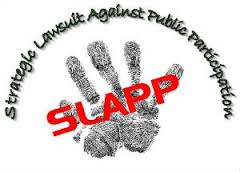Case Status: Victory
Burke v. Doe

Offended Lawyer Tries to Unmask the Internet
CIR is representing an anonymous Wikipedia editor in a precedent-setting case designed to establish the free speech right of anonymous internet authors to remain anonymous. At issue is whether and on what terms the courts will enforce the District of Columbia Anti-SLAPP statute, which is designed to protect individuals from lawsuits intended to chill or silence speech by allowing the case against them to be dismissed at an early stage if the speech concerns a matter of public concern and if the complaining party cannot establish a likelihood of success on the merits.
CIR’s client, who goes by the screen name “Zujua,” was sued for defamation by Susan Burke, a human-rights attorney who has garnered considerable public attention as a result of several lawsuits against the U.S. military and military contractors such as Blackwater USA, Inc.
Zujua edited a portion of Burke’s Wikipedia page concerning her lawsuit against Blackwater over the shooting deaths of Iraqi civilians. In editing this portion of her page, Zujua mistakenly linked her civil case against Blackwater with a federal criminal case against Blackwater employees over the same events. The latter case had been dismissed because of prosecutorial misconduct. The error was corrected a month later.
Still, Burke launched a defamation suit against Zujua, an action CIR characterizes as a SLAPP suit (a Strategic Lawsuit Against Public Participation) that is calculated to make others hesitate to criticize Susan Burke. Pursuant to the District of Columbia SLAPP statute, a person sued as a result of participating in public discussion can move to dismiss the case early-on unless the plaintiff can show a likelihood of succeeding on the merits.
In the trial court we moved to quash subpoenas Burke had issued to Wikipedia to learn Zujua’s identity on the grounds that because Susan Burke is a public figure, she must show that Zujua made his confused edit with the knowledge that it was false in order to prevail in her defamation suit. The trial court erroneously denied the motion and CIR appealed.
Burke countered that Zujua has no right of immediate appeal and that, as a result, he must disclose his identity, defend himself in the suit, and then, on appeal, raise the question of whether the trial court improperly denied him the protection of the SLAPP statute. CIR argued that the SLAPP statute would offer little protection to an individual such as Zujua unless the law provided an immediate right of appeal on the question whether his speech was protected by the SLAPP statute.
CIR’s defense of Zujua resulted in a precedent that strengthens the anti-SLAPP statute in the District of Columbia — one of the most important free-speech jurisdictions in the country.
Updates on this case

Mar 2016
Free Speech Protections Bolstered in District of Columbia
In a significant victory for CIR client “Zujua” -- an anonymous Wikepedia editor who was sued for defamation for making…

Jul 2014
Jeremy Rabkin: Protecting Wikipedia contributors means protecting the modern Internet
A ruling last month by the District of Columbia Court of Appeals is a major victory for the openness of…

Jun 2014
Victory for Anonymous Internet Speech
The District of Columbia Court of Appeals issued the first ruling ever under the D.C. Anti-SLAPP statute. The Court…

Jan 2014
Protecting Anonymous Speech
A three-judge panel of the District of Columbia Court of Appeals heard oral argument on January 29, 2014 in CIR's appeal of…
